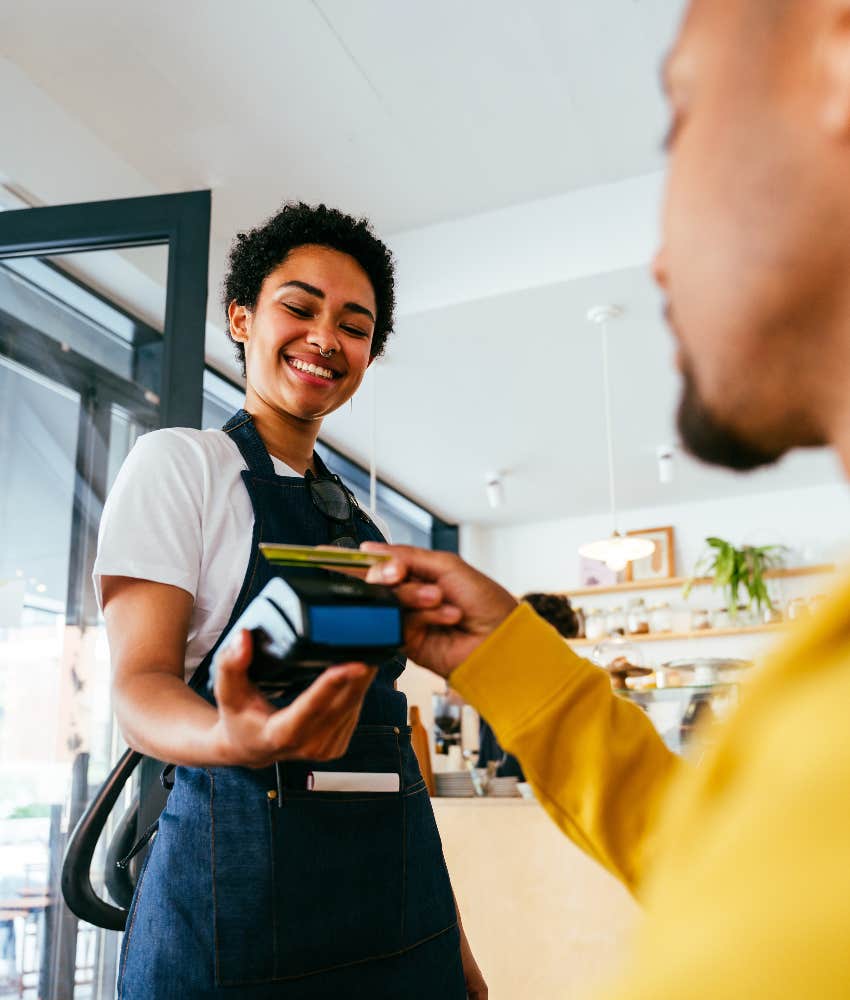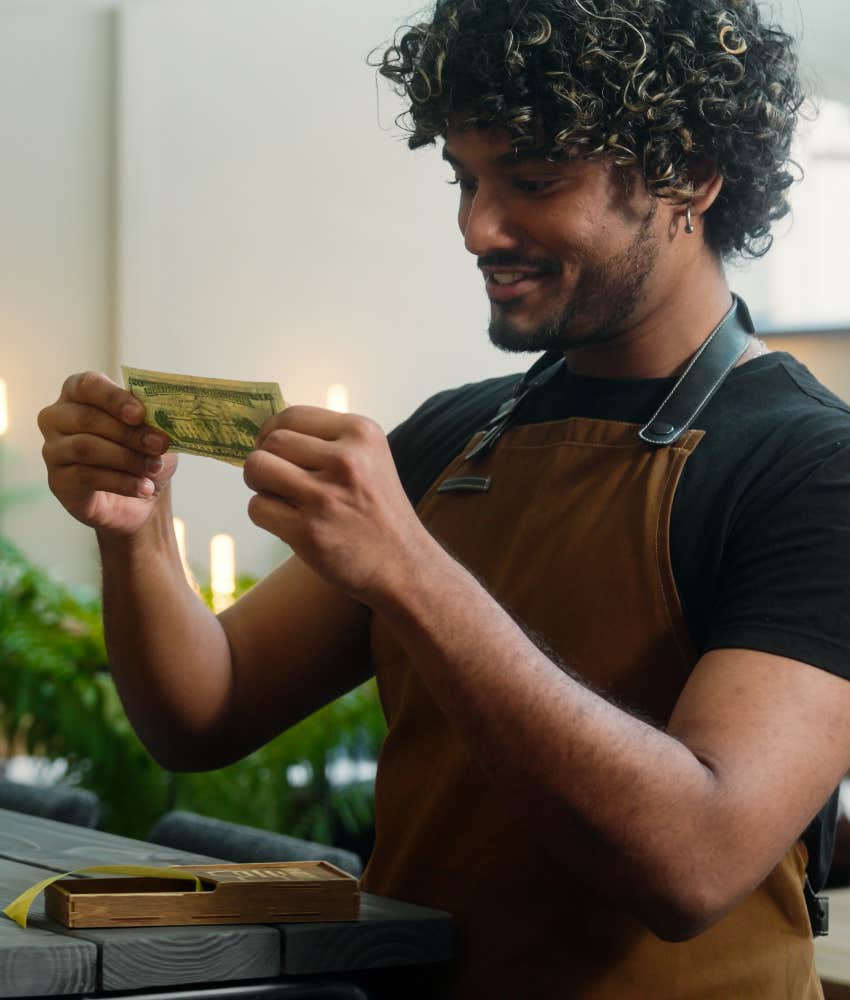Customer Says 'I Don't Care How Much The Bill Is, You're Getting Tipped Off Of Your Service'
"I've tipped higher at a Waffle House than I have for a $600 steak dinner."
 fast-stock / Shutterstock
fast-stock / Shutterstock Tipping culture in America has become a popular topic of debate. Some people believe that we do not tip our service workers enough, while others argue that tipping has gone over the top.
Generally, when we do tip, it is considered customary to tip 15-20% of the total bill. However, one customer shares his own approach when it comes to tipping servers at restaurants, which has some people agreeing with him and others raising their eyebrows.
The customer claimed that he does not tip based on the cost of the meal, but on how well the service was.
The customer (@repairman67) posted a TikTok video where he responded to a fellow user who questioned why tips are often based on the cost of the food and not the actual service. Her question resonated with the customer, since he admits he does not, in fact, tip based on the total bill, but rather on how well he believed the service was.
 oneinchpunch | Shutterstock
oneinchpunch | Shutterstock
“People are gonna hate me for this, but I do not tip according to the cost of food,” he said. “I don’t care if my bill was $1,000 or if I go somewhere and it was $25. Your tip depends on how well you treated me.”
The customer claimed that it’s the “small details” in service that matter the most to him. “If I take a drink from my drink and it never hits ice, you’re getting a good tip,” he said. “If I’m never looking around for my server, wondering where you’re at to ask you a question, you’re getting a good tip.”
The customer revealed that he had actually tipped higher at a Waffle House restaurant than he had at a fancy steakhouse, where the bill totaled $600, simply due to better service at Waffle House. “The lady at Waffle House filled my drink before it hit empty, and she always put it on my left-hand side where I was putting my drink,” he shared. “Versus the restaurant where I only got a steak, and it cost me $600. My drink was empty like six or seven times, and I had to raise my hand in the air to get her [the waitress] to come and refill it.”
The man sparked a variety of reactions from other TikTok users for his tipping perspective.
Some people agreed with the customer’s approach to tipping servers based on how good their service was. “As a server, I love people like you. I’d rather be tipped on my ability to do my job over if your meal was delicious,” one user commented.
However, others were not in complete agreement and believed that the bill total should be considered as a factor when tipping. Another user wrote, “I agree to tip according to service, but the price has to come into play at some point. I mean, it sounds like an excuse to be cheap."
Other users who were servers themselves claimed that at the end of their shifts, they were required to share their tip money with the supporting staff, including the chefs, and that if customers undertipped them, it cost them money and affected the rest of the restaurant staff. “Where I work I must tip out a minimum 7% of the total bill. Regardless of how much you leave me, you could cost me money,” a third user noted.
Many things come into play when considering how much to tip and tipping culture in general.
While service is an essential part of your restaurant experience and certainly something customers should think about when tipping, it is also important to take other factors into consideration, including how crowded a restaurant is, how many food and drink orders you put in, and if the restaurant is fully staffed or not.
 MAYA LAB | Shutterstock
MAYA LAB | Shutterstock
These all can affect the speed and efficiency of your server, and even if it may not appear so, many of them are going above and beyond to ensure that you have a pleasant dining experience, and certainly deserve any tip you are willing to give them.
Megan Quinn is a writer with a bachelor's degree in English and a minor in Creative Writing. She covers news and lifestyle topics that focus on justice in the workplace, personal relationships, parenting debates, and the human experience.

